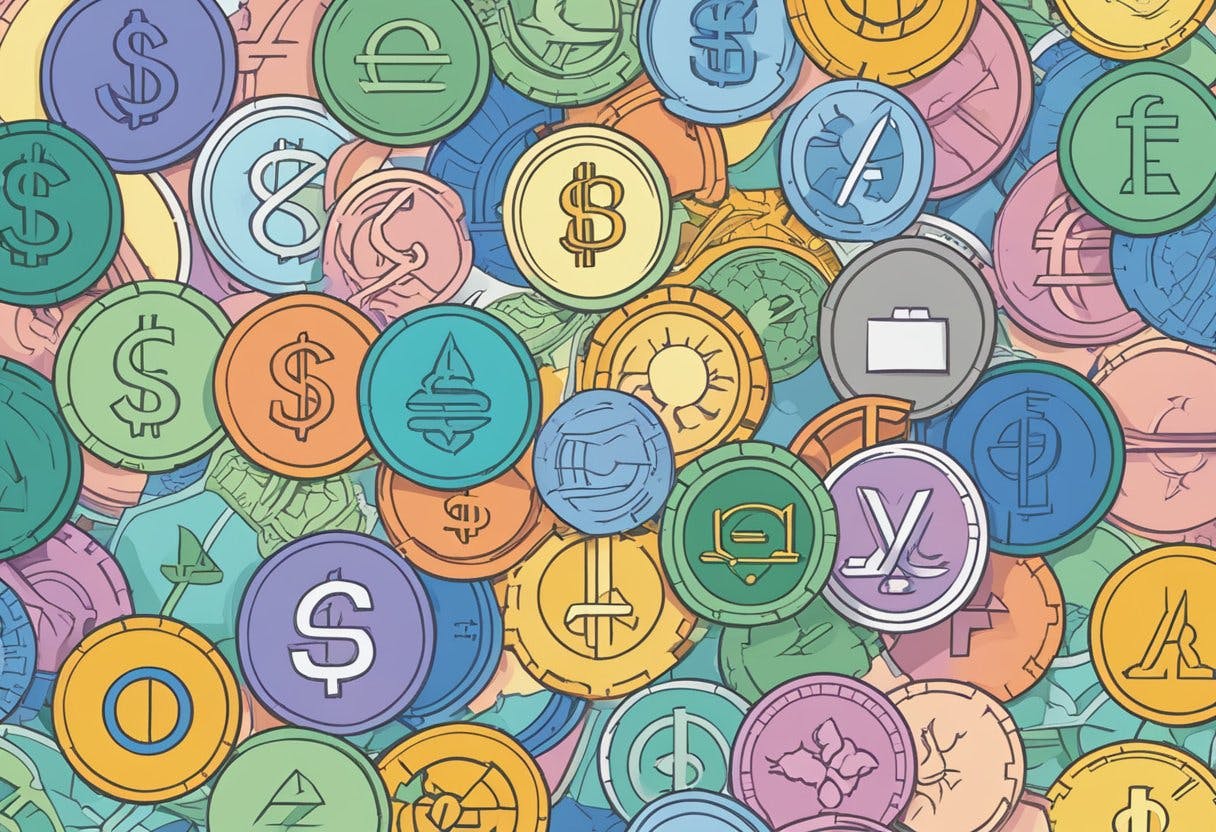The forex market is the largest financial market in the world, with an average daily trading volume of over $5 trillion. It is a decentralized market where currencies are bought, sold, and exchanged between participants from all over the world. The forex market is influenced by a wide range of factors, including economic, political, and social conditions. One of the most significant factors that impact the forex market is the major players who participate in it.

The major players in the forex market are commercial banks, central banks, hedge funds, and institutional investors. These players are responsible for a significant portion of the daily trading volume in the forex market. They have a significant impact on the market’s liquidity and pricing. For example, central banks can influence exchange rates by adjusting interest rates or by intervening in the forex market to buy or sell currencies. Hedge funds and institutional investors can also have a significant impact on the forex market by using large amounts of capital to trade currencies.
Key Takeaways
- The forex market is the largest financial market in the world, with an average daily trading volume of over $5 trillion.
- Major players in the forex market include commercial banks, central banks, hedge funds, and institutional investors.
- These players have a significant impact on the market’s liquidity and pricing, and can influence exchange rates through various means.
Key Forex Market Participants

There are various participants in the forex market, each with their own unique role. Here are some of the key players in the forex market:
Central Banks and Governments
Central banks and governments play a vital role in the forex market. They are responsible for regulating their respective countries’ monetary policies, which can have a significant impact on currency values. For example, if a central bank decides to raise interest rates, it may cause the value of the currency to appreciate. On the other hand, if it lowers interest rates, it may cause the currency value to depreciate. Some of the major central banks in the world include the Federal Reserve in the United States, the European Central Bank, and the Bank of Japan.
Institutional Investors and Hedge Funds
Institutional investors and hedge funds are also significant participants in the forex market. They are responsible for managing large amounts of money on behalf of their clients, which can result in significant market movements. For example, if a hedge fund decides to buy a large amount of a particular currency, it may cause the value of that currency to appreciate. Similarly, if a hedge fund decides to sell a large amount of a particular currency, it may cause the value of that currency to depreciate.
Commercial and Investment Banks
Commercial and investment banks are major players in the forex market. They provide currency exchange services to clients, including businesses and individuals, and engage in forex trading to manage their own assets and liabilities. Some of the largest commercial and investment banks in the world include JPMorgan Chase, Citigroup, and HSBC.
Retail Traders and Brokers
Retail traders and brokers are individual traders who participate in the forex market. They trade currencies on their own behalf or on behalf of their clients. Retail traders typically trade in smaller volumes than institutional investors and hedge funds, but can still have a significant impact on the market. Retail brokers provide access to the forex market for individual traders and typically charge a commission or spread for their services.
In conclusion, the forex market is made up of various participants, each with their own unique role. Central banks and governments, institutional investors and hedge funds, commercial and investment banks, and retail traders and brokers are among the key players in the market. Understanding the role of these participants can help traders make informed decisions and navigate the complexities of the forex market.
Market Structure and Dynamics

The forex market is a decentralized market, which means it has no central exchange or physical location. Instead, it is a network of banks, financial institutions, and individual traders who exchange currencies electronically. Understanding the market structure and dynamics is essential to navigate the forex market successfully.
Understanding the Interbank Market
The interbank market is the primary market where large financial institutions trade with each other. This market is not accessible to individual traders, and it is where the largest forex transactions take place. The interbank market is where the exchange rates are determined, and it is the source of liquidity for the entire forex market.
Role of Market Makers and Brokers
Market makers and brokers are essential players in the forex market. Market makers are financial institutions that provide liquidity to the market by quoting both buy and sell prices for a currency pair. Brokers, on the other hand, act as intermediaries between traders and the interbank market. They provide traders with access to the market by executing their trades and charging a commission or spread.
Influence of Liquidity on Forex Trading
Liquidity is a crucial factor in the forex market, and it refers to the ease with which a currency can be bought or sold without affecting its price. High liquidity means that a currency pair can be bought or sold quickly and at a stable price, while low liquidity means that it may take longer to execute a trade, and the price may be more volatile. Market liquidity is influenced by various factors, including economic events, political instability, and market sentiment.
In conclusion, the forex market structure is complex, with various players interacting to determine the exchange rates. Understanding the interbank market, the role of market makers and brokers, and the influence of liquidity on forex trading is crucial to navigate the market successfully.
Economic Factors Affecting Exchange Rates

The foreign exchange market is influenced by a variety of economic factors that can impact exchange rates. Understanding these factors is vital for traders looking to make informed decisions about their investments.
Impact of Interest Rates and Inflation
One of the most significant economic factors affecting exchange rates is interest rates. Central banks use interest rates to control inflation and maintain price stability. When interest rates rise, it becomes more expensive to borrow money, which can slow down economic growth. This can lead to a decrease in demand for a country’s currency, resulting in a decrease in the exchange rate. Conversely, when interest rates fall, it becomes cheaper to borrow money, which can stimulate economic growth and lead to an increase in demand for a country’s currency, resulting in an increase in the exchange rate.
Inflation is another factor that can impact exchange rates. High inflation rates can erode the value of a currency over time, leading to a decrease in demand and a decrease in the exchange rate. Conversely, low inflation rates can increase the value of a currency over time, leading to an increase in demand and an increase in the exchange rate.
Monetary Policies and Interventions
Central banks also use monetary policy to influence exchange rates. For example, a central bank may intervene in the foreign exchange market by buying or selling its currency to influence its value. This can be done to maintain price stability, promote economic growth, or to prevent excessive volatility in the exchange rate.
Currency Value and Volatility
The value of a currency is also influenced by supply and demand. If there is a high demand for a currency, its value will increase, and if there is a low demand for a currency, its value will decrease. Additionally, currency volatility can impact exchange rates. High volatility can lead to uncertainty and a decrease in demand for a currency, resulting in a decrease in the exchange rate.
Overall, economic factors such as interest rates, inflation, monetary policies, and currency volatility can have a significant impact on exchange rates in the forex market. Traders should stay informed about these factors to make informed decisions about their investments.
Strategies and Tools for Forex Trading
Leverage and Margin in Forex
Forex trading involves leverage, which is the ability to trade with more money than what is in the trader’s account. Leverage allows traders to increase their potential profits, but it also increases their potential losses. The use of leverage in forex trading is subject to margin requirements, which are set by the broker. Margin requirements are the amount of funds that a trader must have in their account in order to open and maintain a leveraged position.
Traders must be careful when using leverage and margin in forex trading. They should understand the risks involved and have a solid understanding of how to manage their positions. It is important to use stop-loss orders to limit potential losses and to have a clear exit strategy.
Analysis Techniques for Currency Movements
Forex trading requires analysis of currency movements in order to make informed trading decisions. There are two main types of analysis: technical analysis and fundamental analysis.
Technical analysis involves the use of charts and technical indicators to identify patterns and trends in currency movements. Traders use technical analysis to identify entry and exit points for their trades.
Fundamental analysis involves the analysis of economic and political events that may impact currency movements. Traders use fundamental analysis to identify potential trading opportunities based on economic indicators, such as interest rates, GDP, and inflation.
Traders should use a combination of technical and fundamental analysis to make informed trading decisions. They should also stay up-to-date on economic and political news that may impact currency movements.
Overall, successful forex trading requires a solid understanding of leverage and margin, as well as analysis techniques for currency movements. Traders should use a combination of technical and fundamental analysis to make informed trading decisions. They should also have a clear understanding of the risks involved in forex trading and use risk management strategies to limit potential losses.
Regulatory Environment and Compliance
Understanding Forex Regulations
The foreign exchange market is highly regulated due to the risks associated with trading currencies. Regulations are put in place to ensure the stability and integrity of the market. Forex regulations vary from country to country, and it is important for traders to understand the regulations in their specific jurisdiction.
Regulators play a crucial role in monitoring the activities of market participants to ensure that they comply with legal and ethical standards. In the UK, for example, the Financial Conduct Authority (FCA) is responsible for regulating the forex market. The FCA sets the standards that all brokers under its jurisdiction must comply with.
Role of Compliance in Trading
Compliance is an essential aspect of trading in the forex market. Compliance refers to the adherence to rules and regulations governing the market. Compliance helps to prevent market manipulation and fraud, which can have severe consequences for traders and the market as a whole.
Forex companies are required to have strict Anti-Money Laundering (AML) procedures in place to prevent money laundering activities. Compliance with AML regulations is crucial in ensuring the integrity of the market and protecting traders’ interests.
In conclusion, understanding forex regulations and compliance is crucial for traders to operate in the market successfully. The regulatory environment is constantly evolving, and traders must keep up to date with the latest developments to ensure they comply with the regulations in their specific jurisdiction.
The Future of Forex Markets
As the forex market continues to evolve, technological advancements and evolving market conditions are expected to play a significant role in shaping its future.
Technological Advancements in Trading
Online trading platforms have revolutionized the way forex trading is conducted. These platforms have made it possible for traders to access the market from anywhere in the world, at any time. In addition, online trading platforms have made it easier for traders to analyze market trends and execute trades.
With the increasing adoption of artificial intelligence (AI) and machine learning, trading algorithms are becoming more sophisticated. These algorithms can analyze vast amounts of data and identify market trends that are not easily recognizable to human traders. This is expected to result in more accurate trading decisions and better returns for traders.
Evolving Market Conditions
The forex market is dynamic and constantly evolving. Market conditions can change rapidly, and traders need to be able to adapt quickly to these changes. As the global economy continues to recover from the COVID-19 pandemic, the forex market is expected to experience increased volatility.
In addition, geopolitical events such as elections, trade agreements, and natural disasters can have a significant impact on the forex market. Traders need to be aware of these events and be prepared to adjust their trading strategies accordingly.
The Bottom Line
The future of the forex market is bright, with technological advancements and evolving market conditions expected to create new opportunities for traders. However, traders need to be aware of the risks associated with forex trading and be prepared to adapt to changing market conditions. By staying informed and utilizing the latest trading tools and strategies, traders can capitalize on the opportunities presented by the forex market.
Frequently Asked Questions
Who are the top participants in the Forex market?
The major players in the Forex market include commercial banks, central banks, hedge funds, and other financial institutions. According to Forex.com, over $7 billion is traded on the Forex market every day. The largest players in the market are commercial banks, which account for around 50% of all Forex transactions.
What factors significantly affect currency fluctuations in the Forex market?
Several factors can influence currency fluctuations in the Forex market. These include economic indicators such as inflation, interest rates, and GDP growth. Political events such as elections, policy changes, and geopolitical tensions can also have an impact on currency values. Additionally, market sentiment, speculation, and the actions of major market players can also affect currency prices.
How do major banks influence Forex trading practices?
Major banks play a crucial role in the Forex market as they provide liquidity and facilitate transactions for their clients. They also engage in speculative trading for their own accounts, aiming to profit from exchange rate fluctuations. Additionally, major banks can influence the Forex market through their participation in central bank interventions and currency market manipulations.
What is the estimated value of the Forex market as of 2023?
As of 2023, the Forex market is estimated to have a daily turnover of $6.6 trillion, making it the largest and most liquid financial market in the world. This figure is based on data from Quantified Strategies.
In what ways do central banks impact the Forex market?
Central banks can impact the Forex market through their monetary policy decisions, such as interest rate changes and quantitative easing measures. These actions can affect the value of a country’s currency and influence Forex trading practices. Additionally, central banks can intervene in the Forex market by buying or selling currencies to stabilize exchange rates.
What roles do individual traders play in the overall Forex market ecosystem?
Individual traders, including retail traders and small investors, play a significant role in the Forex market. They account for a growing share of Forex trading volume and can influence market sentiment and price movements. However, individual traders typically have less market power compared to major institutions and are subject to higher levels of risk and volatility.
Read More




